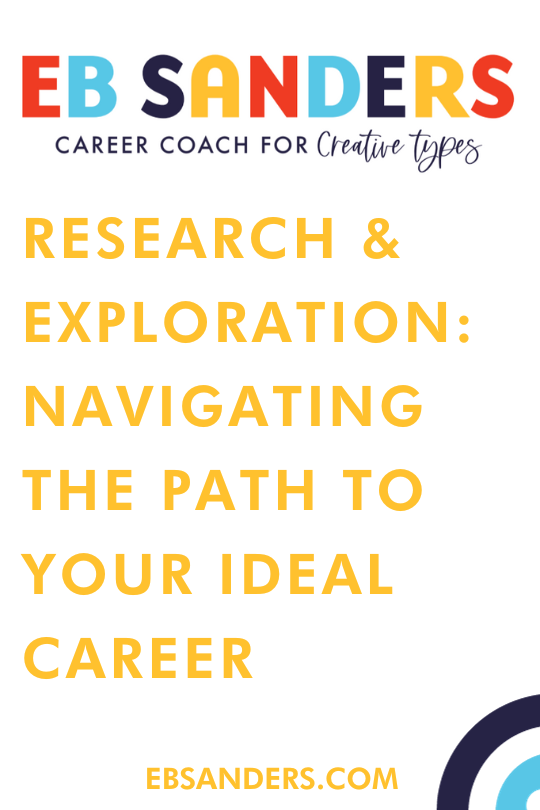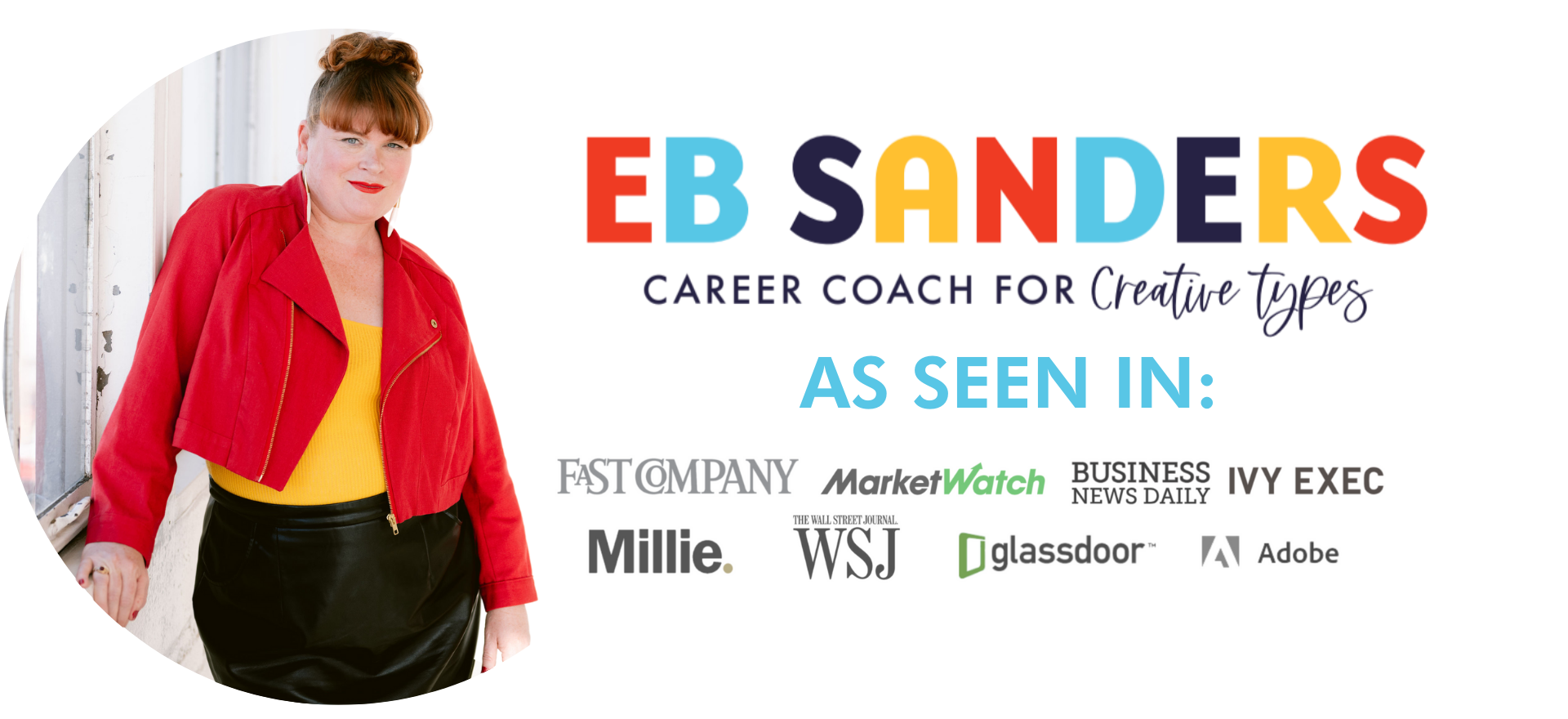This is part of an ongoing series all about how to find your ideal work. To start at the beginning, head here and to get notified when the next in the series is available add your info below:
With a solid foundation of self-awareness in place, it's time to embark on the journey of researching and exploring potential career options that align with your interests and goals. This phase is where you gather critical information, make informed choices, and begin shaping your path towards a fulfilling and financially rewarding job.
In this post, we'll delve into each aspect of this process, providing detailed guidance to help you navigate this crucial stage of your career development.
Let’s dive in.
RESEARCH INDUSTRIES:
Identify Your Target Industries: Begin by identifying industries or sectors that align with your interests and values. Consider the passions and values you explored in the self-reflection stage.
For example, if you're passionate about sustainability and environmental issues, you might be drawn to industries such as renewable energy, environmental conservation, or sustainable agriculture.
Read Industry Publications: Dive into industry-specific publications, magazines, websites and journals to gain in-depth knowledge about your chosen sectors.
This will help you stay updated on trends, challenges, and opportunities within those industries. Look for publications such as "Harvard Business Review," "Science," "TechCrunch," or industry-specific magazines like "Healthcare Executive" or "Environmental Science & Technology."
Attend Webinars and Seminars: Stay informed by attending webinars, seminars, and conferences related to your target industries.
These events offer valuable insights from experts and professionals, giving you a deeper understanding of industry developments. Websites like Eventbrite, Meetup, and industry-specific associations often list upcoming events.
Join Online Forums and Communities: Connect with like-minded individuals by joining online forums, communities, and social media groups dedicated to your chosen industries.
Platforms like LinkedIn, Reddit, and specialized industry forums provide opportunities to learn, ask questions, and engage in discussions with professionals.
Informational Interviews: Consider reaching out to professionals working in the industries you're interested in and request informational interviews.
These conversations allow you to gain firsthand insights into the day-to-day realities of specific roles, challenges, and potential career paths. Prepare thoughtful questions and approach these interviews with genuine curiosity.
SEEK ADVICE:
Networking: Building a professional network is instrumental in your career exploration journey. Leverage your existing network and expand it by attending networking events, connecting with alumni, and engaging with professionals on LinkedIn.
Your network can provide valuable advice, referrals, and opportunities.
Informational Interviews (Again): Informational interviews aren't just for gaining insights; they're also excellent networking opportunities.
When you reach out to professionals for advice, you're initiating connections that can lead to mentorship or even job referrals in the future.
Mentorship: Seek out mentors who have experience in your desired industry or field.
A mentor can provide guidance, share their experiences, and offer invaluable career advice. Look for mentors who align with your goals and values.
DO SOME LEARNING:
Identify Relevant Courses: With a clearer picture of your desired field, identify online courses or certifications that can enhance your knowledge and skills.
Platforms like Coursera, edX, Udemy, and LinkedIn Learning offer a vast array of courses across various industries.
Structured Learning: Online courses often provide structured learning paths, making it easier to acquire new skills and knowledge.
Some courses even offer certifications that can bolster your resume and demonstrate your commitment to professional development.
Self-Paced Learning: Online courses are typically self-paced, allowing you to balance your learning with other commitments.
This flexibility is especially valuable if you're currently employed or have a busy schedule.
Practical Application: Look for courses that offer practical, hands-on experience.
Projects, assignments, and case studies can help you apply what you've learned in a real-world context, making you more marketable to potential employers.
GET EXPERIENCE:
Identify Opportunities: Search for volunteer or internship opportunities in your chosen field.
Many organizations, especially nonprofits, welcome volunteers who are passionate about their causes. Look for internships that align with your long-term career goals.
Hands-On Experience: Volunteering or interning provides hands-on experience, giving you a taste of what it's like to work in your desired field.
This practical exposure can confirm your interest and help you build a relevant skillset.
Networking (Again): Volunteering or interning also provides opportunities to network with professionals in your industry.
Establishing connections can lead to mentorship, job referrals, or future employment opportunities.
Build Your Portfolio: Use your volunteer or internship experiences to build a portfolio of work.
Document your contributions, projects, and accomplishments. A strong portfolio can impress potential employers during job interviews.
The research and exploration phase of your career journey is all about gathering information, seeking guidance, and acquiring the knowledge and skills needed to pursue a career aligned with your passions and goals.
It's a dynamic and evolving process that requires curiosity, adaptability, and persistence.
By leveraging resources, networking, and engaging in hands-on experiences, you're laying the groundwork for success as you move closer to finding that perfect job—one that you love and that pays well.
In the next steps of this guide, we will explore how to effectively apply your newfound insights and skills to secure your dream job.
Yours in exploration goodness-
EBS
___
EB Sanders | Career Coach for Creative Types
Unsatisfied with your work? Start HERE now!



